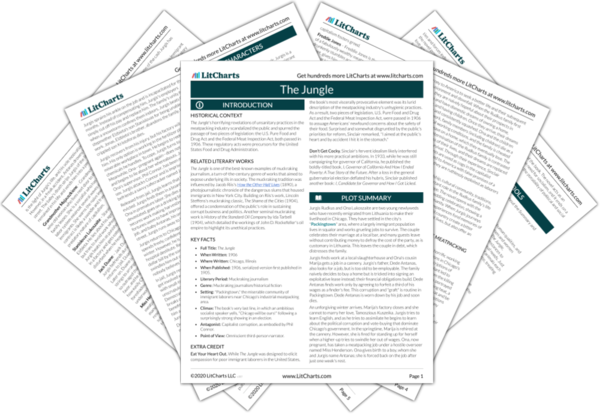LitCharts assigns a color and icon to each theme in The Jungle, which you can use to track the themes throughout the work.
The Dehumanizing Evils of Capitalism
The Immigrant Experience and Disillusionment
The Horrors of the Meatpacking Industry
Family, Masculinity, and Individualism
Labor Rights and Socialism
